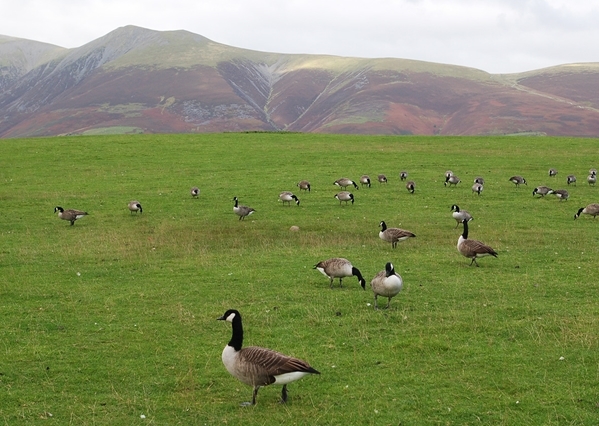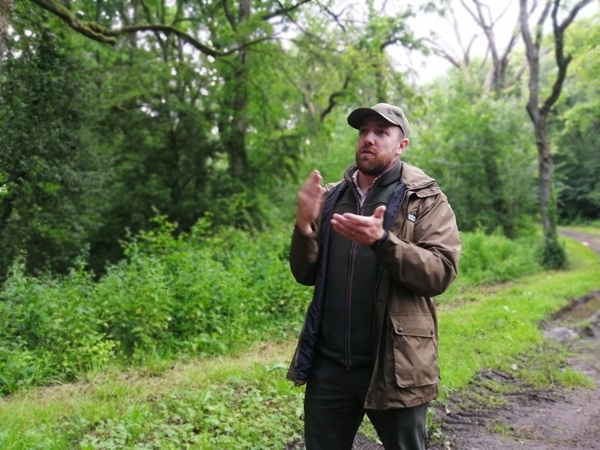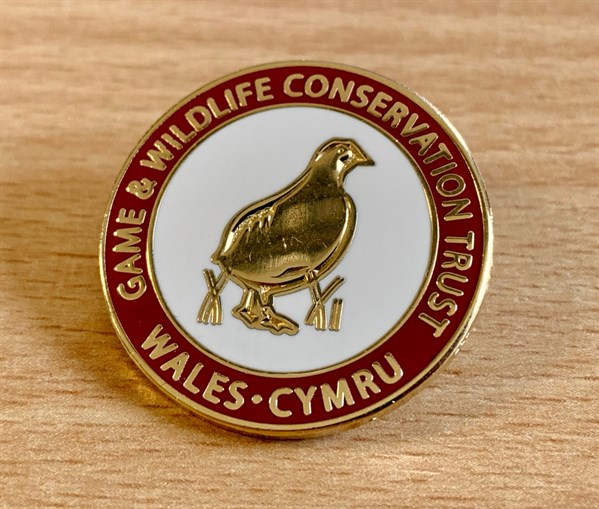
Picuture of Canada Geese. By Pete Thompson
NATURAL Resources Wales has announced new General Licences in Wales – but GWCT cannot support them.
This comes after months of stakeholder engagement where GWCT has provided scientific evidence, advice and experience. During this process GWCT, and other user groups, have repeatedly raised concerns over several proposed changes to the licences, which were approved by the NRW board on 18th September. GWCT has significant concerns that our scientific evidence, technical expertise and experience in General Licence issues have not been considered and that the scientific evidence review process and conclusions drawn from it are deeply flawed.
There are several changes to the licences which our members and those that use the General Licences in Wales need to be aware of:
GL001: Has been re-titled as ‘Licence to kill or take certain wild birds to prevent serious damage to livestock, crops, vegetables or fruit or to prevent the spread of disease to livestock, foodstuffs for livestock, crops, vegetables or fruit’. The major change to this licence is that collared dove, jay and rook have been removed.
GL002: Has been re-titled as ‘Licence to kill or take certain wild birds for the purpose of preserving public health and preventing the spread of disease’. The major change to this licence is that carrion crow, collared dove, jackdaw, jay, magpie, rook and woodpigeon have all been removed. Therefore, the only species this licence now relates to is feral pigeon.
GL004: Has been re-titled as ‘Licence to kill or take certain wild birds for the purpose of conserving wild birds’. The major changes to this licence are that feral pigeon, rook and Canada goose have been removed and that a condition has been introduced limiting the use of the licence to the protection of the eggs and chicks of species listed in annex 1 of the licence. Crucially, this annex only lists red and amber listed species meaning that the licence cannot be used to protect green-listed species.
The above licences are also subject to further restrictions and are not authorised on certain designated sites. NRW has produced a list of SSSI, SPA and SAC designated areas where the General Licences are not authorised and therefore no action can be taken within them or within 300m of their boundaries (500m for the Dyfi Estuary SSSI/ SPA). Those who use the General Licences on or near SSSI areas are advised to check this list when NRW make it available. If the SSSI they operate on or near is listed, they will need to apply for an individual licence from NRW to gain permission to kill or take certain wild birds.
Those who use the General Licences will rightly be concerned at the removal of rook from licences 001 and 004. Rook are known to cause serious agricultural damage and can be a serious egg predator in certain situations. NRW’s reasoning is that rook have declined in Wales by 60% between 1994 – 2017 and by 50% between 2007 – 2017. Where rooks are causing serious damage to either agriculture or wild bird populations, those wishing to reduce this damage are advised to apply for an individual licence from NRW.

Commenting on the changes to General Licences in Wales, Matt Goodall, GWCT Wales advisor who is pictured above, said: “We have strongly suggested to NRW on numerous occasions that the additional annex to GL 004 will be detrimental to Welsh wildlife. Scientific evidence demonstrates the additional conservation benefits that can arise from those undertaking predation control to protect wild pheasants and red-legged partridges. Removing the ability to conserve green-listed species from this licence removes the incentive for many of those undertaking this time-consuming conservation effort and many additional species will suffer consequently. Removing the ability to protect green-listed species is akin to closing the stable door after the horse has bolted, only conserving species once they have declined past a certain threshold, which is utterly appalling for a body which has statutory obligations to protect biodiversity.”
“The scientific review process, undertaken by NRW, falls drastically short and is not fit for purpose. To produce a licence which ignores the scientifically proven benefits of predation control to green-listed species, such as chaffinch and blackbird but includes species such as sooty shearwater and velvet scoter which do not breed in the UK, is farcical to say the least.”
GWCT objects strongly to some of the changes made to General Licences in Wales, especially those changes to GL 004 which can no longer be used to protect green-listed species. At a time were species are declining across Wales and scientific evidence demonstrates predation control’s role in halting and reversing these declines, it is nonsensical that certain species are no longer offered the protection of GL 004.

Get your GWCT Wales Badge for just £5
Show your support for our work by wearing the Game & Wildlife Conservation Trust Wales Supporters Badge with pride.
View Badge >
or
Buy Now - £5 >
100% Secure. All Credit & Debit cards, PayPal, Apple Pay and Google Pay accepted.

Notes to editors
The Game & Wildlife Conservation Trust – providing research-led conservation for a thriving countryside. The GWCT is an independent wildlife conservation charity which has carried out scientific research into Britain’s game and wildlife since the 1930s. We advise farmers and landowners on improving wildlife habitats. We employ more than 60 post-doctoral scientists and other research staff with expertise in areas such as birds, insects, mammals, farming, fish and statistics. We undertake our own research as well as projects funded by contract and grant-aid from government and private bodies.
For information, contact:
Eleanor Williams
Telephone: 07592 025476
Email: press@gwct.org.uk